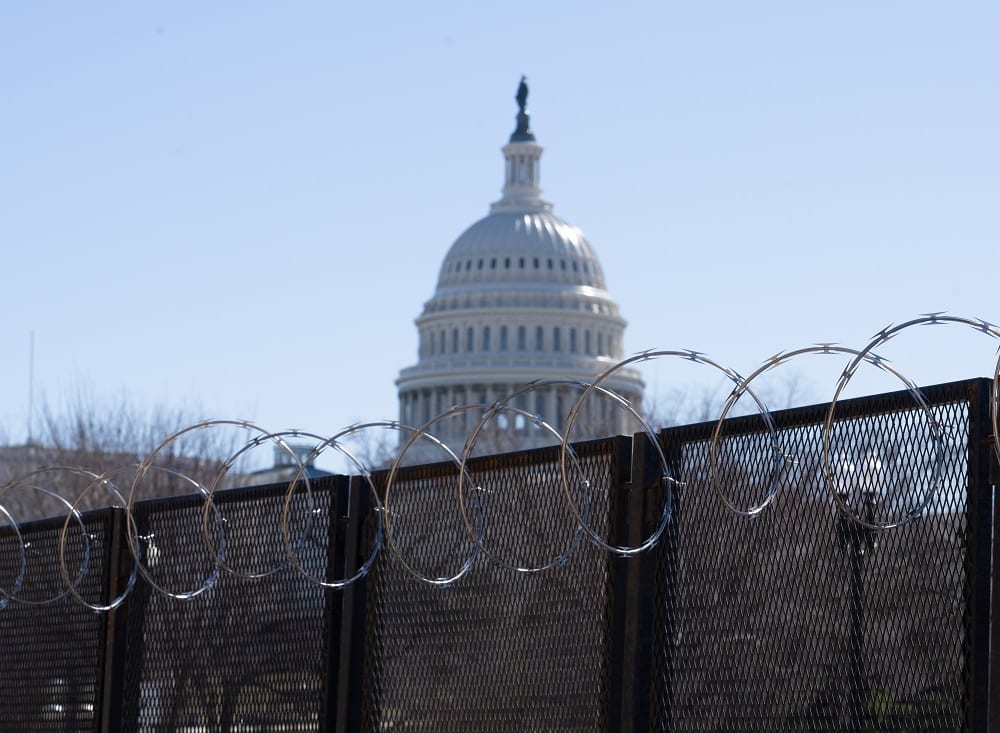Madame Speaker, Tear Down This Wall
By • March 13, 2021 0 597

The following is D.C. Del. Eleanor Holmes Norton’s statement on the introduction of the No Fencing at the United States Capitol Complex Act on Feb. 11.
Today, I introduce the No Fencing at the United States Capitol Complex Act, which would prohibit the construction of new permanent fencing on the grounds of the United States Capitol complex. Since the insurrectionist attack on the Capitol on January 6, 2021, the Capitol complex has become an untraversable fortress surrounded by frightening fences capped with barbed wire, typical of authoritarian regimes.
In recent days, some officials, including the Acting Capitol Police Chief, have suggested that fencing become a permanent security feature of the Capitol complex. Although I agree that more needs to be done to protect the Capitol complex, the failure of Capitol security leaders to plan for the predictable and openly announced attack on the Capitol does not justify closing the complex from the public, to whom it belongs. We can and must maintain our commitment to security without sacrificing public access by using the least restrictive means necessary to address security.
The attack on the Capitol, which had little to do with the lack of permanent fencing, was the greatest intelligence and security failure in the history of our nation’s capital. There were countless security failures on January 6 that we can and must address, including: taking threats of extremist violence seriously at an earlier stage; blocking off the Capitol during high-profile and high-threat events, as is typically done, but was not done on January 6; manpower; and training.
Permanent fencing, which is incredibly imprecise, would not address these very real security lapses. It is more likely to keep out children, joggers and tourists than a coordinated attack on the Capitol. In fact, it is another form of security theater — it would make the Capitol “look” safe but mask the lack of state-of-the-art security measures that could actually prevent attacks in the future. Just in the past few days, security experts have already begun putting forward innovative ways to protect the Capitol while also protecting the values of openness and transparency, which are central to our democracy. We must foster that dialogue and welcome fresh ideas, not default to an archaic security strategy that humans invented over 10,000 years ago.
Permanent fencing would send an un-American message to the nation and the world, by transforming our democracy from one that is accessible and of the people to one that is exclusive and fearful of its own citizens. It would tell the world that the most powerful nation must rely on crude barriers for safety instead of state-of-theart intelligence and security protocols. The Capitol has welcomed First Amendment protests and demonstrations for centuries without becoming a fortress. The openness of the Capitol and our democracy is our strength, not a security weakness that needs to be rooted out. Any further consideration of permanent fencing is desperate, distasteful and disrespectful of our history and institutions.
Furthermore, we cannot forget that the Capitol complex does not exist in a vacuum. It is immediately surrounded by residential neighborhoods and local businesses, which form the heart of the District of Columbia. Permanent fencing would cause serious damage to the fabric of these communities. These residents and businesses have been more than understanding as their neighborhoods have turned into militarized zones. They have waited patiently as officers check their identification on their walk home and taken alternative routes when they have found blocked streets. Permanent fencing would infringe on their ability, as well as the general public’s ability, to enjoy the public spaces that define our nation’s capital.
Already, the distance between government and the people has grown, with trust in government at historic lows. We should not entrench that distance further by placing intimidating barriers between ourselves as public servants and the people we serve, especially when such barriers are neither effective nor necessary.
I urge my colleagues to support this bill.

